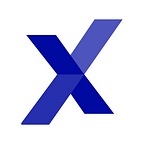Refracting Learning to Thrive Tomorrow
By Carla Aerts, Tmrw Institute
Refract: VERB [WITH OBJECT] (of water, air, or glass) make (a ray of light) change direction when it enters at an angle.
‘the rays of light are refracted by the material of the lens’
‘Color is important: one sees the reds, tans and browns of skin color, the blue of water and the wavy white lines of light refracted through the water.’[1]
‘The best way to know a thing is in the context of another discipline.’[2]
We live in a somewhat of an oxymoron; the promise of technology and science being contrasted by huge challenges of climate change, AI, automation, and depletion of resources, to name but a few. Our world is poised for the future, it always has been, but perhaps never as much as today. Yet education needing to be concerned with preparing learners for their future, continues to hark back to the past.
The Industrial Revolution relied on a skilled, yet highly standardised workforce for its mechanistic production processes at scale. Enter the Prussian education model of instruction and an approach of one fits all, highly effective and fit for purpose to serve the pressing needs of this transformative era in the history of humanity.
Fast forward around 200 years. The world is totally different. In education though, not much appears to have changed. Classrooms and lecture theatres still look pretty similar. The blackboard may have changed colour, but pedagogies or didactic approaches don’t appear to have evolved much. More often than not, these still rely on the principles of instruction, rather than the promotion of learning, competency and insight in one’s learning or meta-cognition[3].
Whilst technological storms and digital disruption rage, they seem to have stopped outside the school gate. Digitisation has made a rather hesitant, yet cumbersome and often alienating entry, built on models of retrofit, rather than transformation or innovation. A rather poor start for technology to be meaningful and allow for augmentation of teaching and learning; more so in an era in which AI or Machine Learning are evolving at exponential speed. Internet chaos is driving information flow and our behaviour in a world of predictive algorithms, in which pull rather than push of information has become the modus operandi.
Today’s learner and her teacher has to navigate this increasingly chaotic and challenging world. This requires an aptitude and acumen to develop appropriate skills to deal with its
[1] Oxford Dictionary — US English
[2] Leonard Bernstein, The Unanswered Question: Six Talks at Harvard, 1973
[3] Meta-cognition: thinking about thinking, knowing about knowing or higher-order thinking skills.
